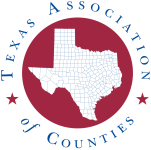News Article | September 15, 2023
AG Opinions and Requests
Attorney General Opinions
AC-0002: The opinion considers the authority of a magistrate to deny bail following a designation under Code of Criminal Procedure article 17.027(a)(1) (RQ-0484-KP). The opinion concludes that the Code of Criminal Procedure article 17.027(a)(1) concerns the release on bail of a defendant charged with a felony committed while on bail for a prior felony in the same county. A court designated in writing pursuant to article 17.027(a)(1) to set bail under these circumstances is not authorized to deny bail unless the designated court is a district court, as only a district judge may deny bail to a person accused of a felony committed while on bail for a prior felony pursuant to the Texas Constitution article I, section 11a.
AC-0003: Considers the authority of a county commissioners court to adopt and enforce a moratorium regarding commercial solar projects (RQ-0500-KP). The opinion provides that specified provisions of the Transportation Code give a commissioners court authority over certain aspects of county roads. To the extent a moratorium proposed by a county in relation to a commercial utility-scale solar energy facility is adopted pursuant to such authority but is meant to reach activity other than that related to county roads, a court would likely find it invalid and unenforceable. Health and Safety Code section 121.003 authorizes the commissioners court of a county to enforce laws reasonably necessary to protect the public health. To the extent a moratorium proposed by a county in relation to a commercial utility-scale solar energy facility is adopted pursuant to section 121.003 but does not seek to enforce a specific, preexisting public health law, a court would likely find it invalid and unenforceable.
AC-0004: Considers questions relating to the respective responsibilities of a county sheriff’s office and the Texas Department of Criminal Justice regarding the detention and transportation of offenders to state jail facilities (RQ-0501-KP). The Texas Department of Criminal Justice (TDCJ) may not require a county sheriff to transport inmates to a substance abuse felony punishment facility or an intermediate sanction facility, nor may it refuse to reimburse a county for transporting an inmate to a state jail division facility. A county must generally utilize its normal procedures for collecting on a debt owed to the county if TDCJ refuses to reimburse the county for inmate transport. Pursuant to House Bill 2620 from the 88th regular legislative session, the failure of TDCJ to take custody of an inmate within 45 days as required by law results in statutory compensation to the county by TDCJ for any extended period of detention. Extended periods of detention, however, are not expressly authorized under the law.
Requests for Attorney General Opinion
RQ-0002-AC: Hood County Attorney. Considers the authority of the Hood County Development District Number 1 to add an additional member to its board of directors under Local Government Code chapter 383.
RQ-0003-AC: Burnet County Attorney. Considers the authority of a home-rule municipality to require a certificated telecommunications provider or the holder of a state-issued certificate of franchise authority to enter into a Broadband Internet Services Right-of-Way Agreement.
RQ-0004-AC: Jack County Attorney. Asks for a determination relating to the meaning of the term “excessive discount” under Alcoholic Beverage Code subsection 102.07(c).
RQ-0005-RQ: Aransas County Auditor. Considers the authority of a deputy sheriff under Transportation Code section 621.402 to operate a fixed motor vehicle weigh station for all commercial vehicles.
RQ-0006-AC: 24th Judicial District Attorney. Considers whether Government Code section 41.106 requires the counties of a multi-county judicial district to equitably share funding responsibility of the district attorney’s office.

